Search Results
Showing results 1 to 15 of 15

Planaria Regeneration
Source Institutions
In this experiment with planaria (a type of flatworm), learners will investigate the capability of different body sections to regenerate.
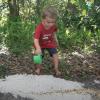
Discovery Time: Tracks
Source Institutions
In this activity, young learners, (2 years and up) explore animal behavior and adaptations by providing a "track trap" and observing the signs animals leave behind.
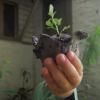
Discovery Time: Wildflowers
Source Institutions
In this activity, young learners (2 years and up) explore flower and plant biology and pollination by planting seed in a homemade seed starter.

Feed the Birds
Source Institutions
Learners construct a bird feeder from re-used materials. After hanging their feeder, they keep a journal about what birds visit the feeder.
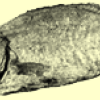
Make a "Mummy"
Source Institutions
The Ancient Egyptians used a naturally-occurring salt from the banks of the Nile River, called natron, to mummify their dead.

Mosquito Life Cycle
Source Institutions
In this activity, learners build a plastic emergence chamber (or use purchased "mini mosquito breeder") to observe and analyze the mosquito life cycle.
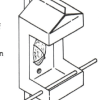
Bird Feeder
Source Institutions
In this outdoor activity, learners construct bird feeders and set them up at to investigate bird behavior for one or two weeks. Multiple feeder designs are suggested.
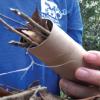
Discovery Time: Bugs
Source Institutions
In this activity, young learners (2 years and up) explore the world of insects and other "bugs" by Making a "bug hotel" with recycled objects.
What Does Life Need to Live?
Source Institutions
In this astrobiology activity (on page 11 of the PDF), learners consider what organisms need in order to live (water, nutrients, and energy).

Fruit Fly Trap
Source Institutions
Build a fruit fly trap out of a 2-liter plastic bottle and some rotten fruit! Fruit flies are easy to catch in warm weather. Once you catch some, you will be able to see their life cycle up-close.

Weather Forecasting
Source Institutions
This activity (on page 2 of the PDF under SciGirls Activity: Forecasting) is a full inquiry investigation into meteorology and forecasting.
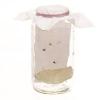
A Slice of Apple Fly
Source Institutions
In this activity, learners build an instrument for catching and observing flies. Learners act as entomologists, attract flies into a jar using a slice of apple, and then observe the flies' behavior.

2-Liter Landfill
Source Institutions
In this activity, learners gain a better understanding of how household/school waste breaks down in a landfill. Learners collect trash and then create miniature landfills in 2-liter bottles.

Zoo Calendar
Source Institutions
Use the Zoo Calendar (page 1 of PDF) to involve learners in interdisciplinary, whole language, and writing activities about ecological concepts.
Butterflies in Space
Source Institutions
The Butterflies in Space Teacher's Guide uses "life in space" to encourage learners to conduct their own open-ended scientific investigations.
